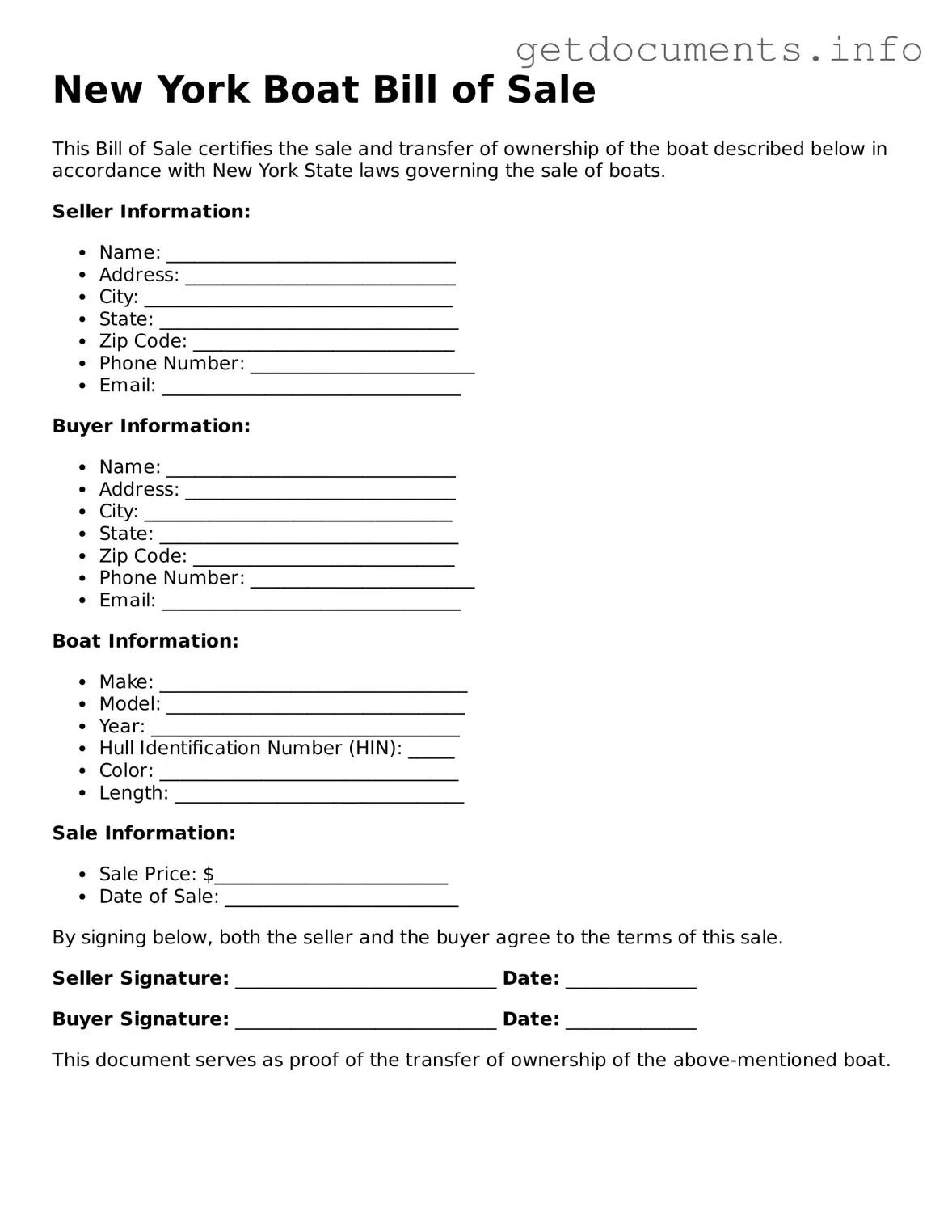Free Boat Bill of Sale Template for New York
The New York Boat Bill of Sale form is a crucial document that serves as proof of the transfer of ownership for a boat. This form not only protects the buyer and seller but also ensures that all necessary information about the vessel is accurately recorded. Understanding its importance can simplify the buying and selling process, making it smoother for all parties involved.
Ready to fill out the form? Click the button below to get started!
Access Boat Bill of Sale Editor

Free Boat Bill of Sale Template for New York
Access Boat Bill of Sale Editor
Got places to be? Complete the form fast
Fill out Boat Bill of Sale online and avoid printing or scanning.
Access Boat Bill of Sale Editor
or
⇩ PDF File
